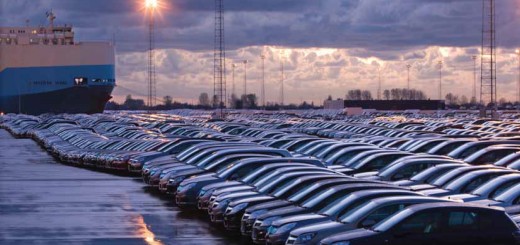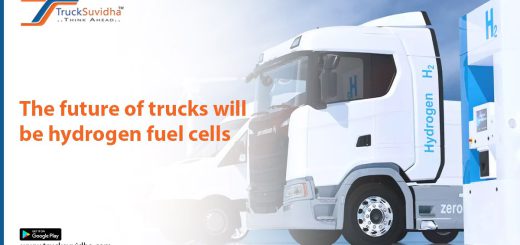The Impact of Electric Trucks on the Logistics Industry
Hey there, truck drivers! The trucking world is changing a lot. Furthermore, electric trucks are becoming very important. These trucks will revolutionize delivery by 2030. Okay, let us discuss what this is going to mean to you. First, electric trucks can reduce fuel costs. Also, they are better for the environment. Furthermore, they are quieter than diesel trucks. This means you can drive in cities without causing noise. However, there will be challenges, like charging stations. But the benefits are huge. Finally, getting used to electric trucks can make your job easier in the long run.
Why Do Electric Trucks Matter?
Cleaner Driving
Initially, you might wonder why electric trucks are important. Subsequently, here’s the deal: these trucks help clean up our planet. In addition, they do not emit smoke as diesel trucks do on the road. More importantly, there are strong policies that reflect governments’ efforts to increase the use of sustainable transportation, and electric trucks are part of the way.
Saving Money
Interestingly, electric trucks can save you and your company money. Additionally, they have fewer parts that can break down. Consequently, this means reduced time in repair shops and more time on the road. Remarkably, the total expenses of servicing them will be cheaper in comparison to other cars, even if these cars will be initially more costly.
Last-Mile Deliveries: A Game Changer for City Trucks
Picture this: You’re driving a truck through a crowded city street. Traditionally, big diesel trucks struggle in tight spaces. However, electric trucks are changing the game completely.
Why Electric Trucks Rock in Cities
Firstly, these trucks are super quiet. Imagine gliding through neighborhoods without that loud engine roar. Secondly, they’re much smaller and more nimble. Consequently, they can:
- Squeeze through narrow streets
- Park in tighter spaces
- Easily navigate around construction zones
New Delivery Options
Beyond traditional trucks, delivery companies are getting creative. Specifically, they’re using:
- Small electric vans
- Electric cargo bikes
- Compact electric delivery vehicles
These vehicles are perfect for quick deliveries. Moreover, they can access areas regular trucks can’t. For instance, they can:
- Enter pedestrian zones
- Use bike lanes
- Make multiple stops quickly
Read More:- Why Trucking Needs Autonomous Vehicle Technology
Charging: Not as Complicated as You Think
Initially, electric truck charging might sound scary. Nevertheless, things are getting much simpler by 2030.
Charging Station Revolution
By 2030, charging stations will be everywhere. Additionally, companies are planning smart charging solutions:
- Charging spots at warehouses
- Fast-charging stations along delivery routes
- Quick-swap battery systems
What Drivers Need to Know
Typically, charging will become as easy as filling up with diesel. Furthermore, technology is improving rapidly. Specifically:
- Charging times are getting shorter
- More charging locations are appearing
- Battery technology is improving
Planning Your Routes
Eventually, route planning will include charging stops. Moreover, technology will help drivers:
- Find nearby charging stations
- Estimate charging times
- Plan efficient routes
Ultimately, electric trucks are making city deliveries easier and smarter. Therefore, truck drivers should get ready for an exciting new era of delivery technology.
The Future: Smart and Self-Driving
Imagine trucks that think for themselves! Surprisingly, this isn’t science fiction anymore. Eventually, electric trucks will become incredibly smart and change how we drive forever.
Smart Truck Superpowers
These futuristic trucks will do some incredible things:
Finding the Best Routes
- Automatically plan the fastest path
- Avoid traffic jams
- Save time and fuel
- Use real-time map updates
Working Non-Stop
- Drive longer without getting tired
- Switch between drivers automatically
- Keep deliveries moving 24/7
- Maximize efficiency
Energy Efficiency
- Use less power than traditional trucks
- Optimize energy consumption
- Reduce overall fuel costs
- Generate less environmental waste
Challenges Trucks Will Face
Nevertheless, these smart trucks aren’t perfect yet. Specifically, drivers should know about some limitations:
Driving Range Challenges
- Cannot travel as far on a single charge
- Need more frequent charging stops
- Battery technology still improving
- Limited by current battery capabilities
Charging Time Issues
- Longer charging compared to diesel refueling
- Potential waiting times at charging stations
- Need for strategic route planning
- Dependency on charging infrastructure
Cargo Space Limitations
- Smaller storage capacity
- Batteries take up more space
- Reduced payload compared to diesel trucks
- Requires careful load management
Read More:- What Are the Benefits of End-to-End Logistics?
What Truck Drivers Must Do
Ultimately, preparation is key. Here’s your roadmap:
Stay Tech-Savvy
- Follow industry technology trends
- Attend training workshops
- Read trucking technology magazines
- Watch online tech tutorials
Learn New Skills
- Understand electric vehicle systems
- Master digital route planning
- Learn basic electric maintenance
- Develop tech-friendly mindset
Embrace Change
- Be flexible and adaptable
- See technology as an opportunity
- Stay positive about industry evolution
- Continuous learning is crucial
Incredibly, truck driving is transforming. Furthermore, those who adapt will lead the way. Therefore, get ready for an exciting journey into the future of transportation!
Final Thoughts
Undoubtedly, electric trucks are the future of trucking. Therefore, getting prepared now will help you stay ahead. In conclusion, embrace the change – it’s going to make trucking cleaner, smarter, and potentially more profitable. In essence, electric trucks aren’t just a trend. Significantly, they represent a major shift in how we transport goods. Consequently, truck drivers who adapt will be the most successful in the years to come.




Recent Comments